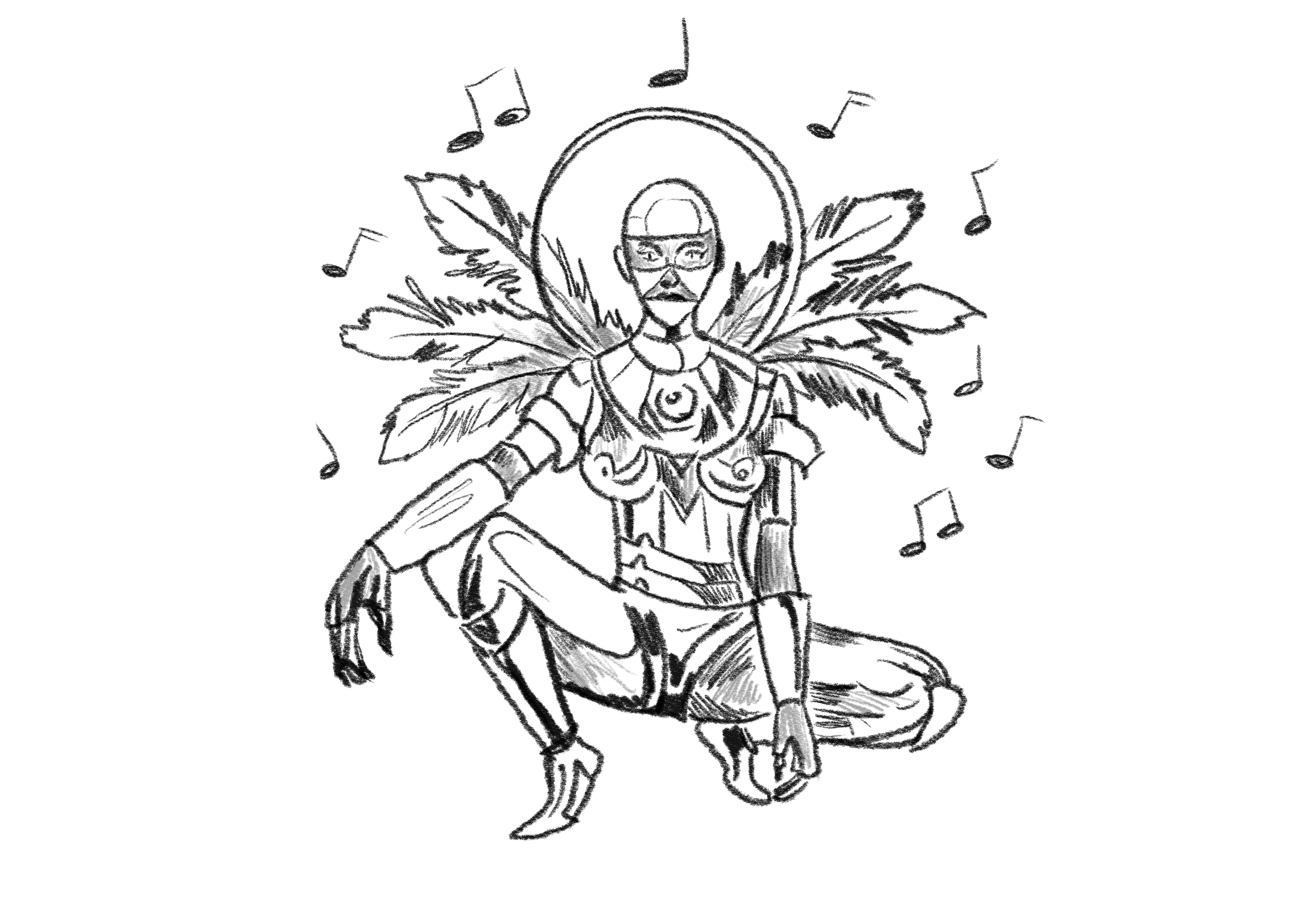Dawn Richard, a master of multiple genres
February 11, 2022
 This
piece represents the opinion of the author
.
This
piece represents the opinion of the author
.
 Sophie Burchell
Sophie Burchell“King Creole” was the name of a mythic Cajun guitarist known for his command of various styles of rock and roll, made famous by the 1958 film named after him starring Elvis Presley. It is also the name of the bouncing intro track from Dawn Richard’s encyclopedic 2021 album, “Second Line.”
Like the original “King Creole,” “Second Line” boasts Richard’s mastery of multiple genres. Where Elvis scaled rock and blues, Richard scales hip-hop to house, neo-soul to electro. But the album also refuses the whitewashing of Louisiana Creole’s past. Richard, who grew up in New Orleans and is herself of Louisiana Creole and Haitian descent, embraces the historically hybrid culture of her Creole ancestors along with the legacy of Black musicians that preceded her. “Second Line”’s strength is its ability to speak to the past as well as the present. If Richard’s album returns the notion of Creole to its traditional hybrid roots, it also applies it to the messy terrain of the modern musical genre.
As the album’s subtitle alludes, “Second Line” is an “Electro Revival,” harking back to the groundbreaking sound of Afrika Bambaataa, whose 1982 “Planet Rock” revolutionized hip-hop by infusing it with electronic tools like the synth and the vocoder. Bambaataa was infamous for his lively South Bronx block parties where he’d experiment with samples ranging from Kraftwerk to The Beatles.
With “Second Line,” Richard updates Bambaataa’s genre-bending to the present, traversing time as much as genre. Songs like “Boomerang” and “Nostalgia” bridge synthesized vocals à la Daft Punk over stratas of funky bass lines. “Mornin/Streetlights” begins as a love song straight from the neo-soul catalog of D’Angelo before diving into a Pablo-era Kanye-esque anthem. The album’s interludes veer its genre to even greater depths: “FiveOhFour” commemorates Richard’s home city over a rough trap beat, while “Le Petit Morte” recedes to a stripped-down piano ballad. Despite all her musical influences, Richard takes directions from just one person. “I don’t need a genre,” she croons on “King Creole.” “Fuck it, I am the genre.”
Perhaps more than anything, “Second Line” is Richard’s ode to the city and culture that shaped her sprawling sense of identity. As she proclaims on the track “Jacuzzi,” “When I was two years old, my mom and dad moved to New Orleans, so I’m a Creole girl.” And few things embody Richard’s freedom better than the city’s famous second line parades. Second lines are euphoric New Orleans street festivals, saturated by the sound of horns and the sight of spontaneous dancing. “It’s a celebration,” Richard ad-libs on “Nostalgia.” “An opportunity for us to do us.”
If “Second Line” leaves audiences craving anything, it may be for its tracks to run just a bit longer. Many of its songs––including some of its most dance-worthy––clock in just shy of three minutes, refusing to satisfy our desire to submerge in a bass-heavy break. This is most pronounced on “Nostalgia,” where Richard’s vocals, along with the song’s bass line, are literally cut short at various points throughout the song, just like the short-lived romance she waxes nostalgic about in her lyrics.
The album’s outro, “SELFish,” is one critical exception to this rule. This seven minute track may be more of an epic ballad than a dance number, but it is a fitting conclusion to an album celebrating the power of indeterminacy. ‘SELFish begins with a melancholic intro that takes its sweet time before diving into the trap beat-laden hook of an empowering breakup song: “I’ma be Selfish, I’ma be, I’ma be, I’ma be, I’ma be selfish”—an elevation of herself over an undeserving lover.
But just like the first forty-five minutes of “Second Line,” ‘SELFish’ is not satisfied by a singular sound. Distorted guitar solos, arpeggiated synth melodies and austere 808s follow in frenzied succession. Its harmonic fluidity evokes the freedom of Dawn Richard’s multiple selves that arise throughout the course of “Second Line.” It also speaks to the places her sound and her identity has yet to take her. Her present “self” is really only selfish––utterly, inevitably incomplete, mediated through the wires of her vocoder.
But just like the first forty-five minutes of “Second Line,” ‘SELFish’ is not satisfied by a singular sound. Distorted guitar solos, arpeggiated synth melodies and austere 808s follow in frenzied succession. Its harmonic fluidity evokes the freedom of Dawn Richard’s multiple selves that arise throughout the course of “Second Line.” It also speaks to the places her sound and her identity has yet to take her. Her present “self” is really only selfish––utterly, inevitably incomplete, mediated through the wires of her vocoder.

Comments
Before submitting a comment, please review our comment policy. Some key points from the policy: